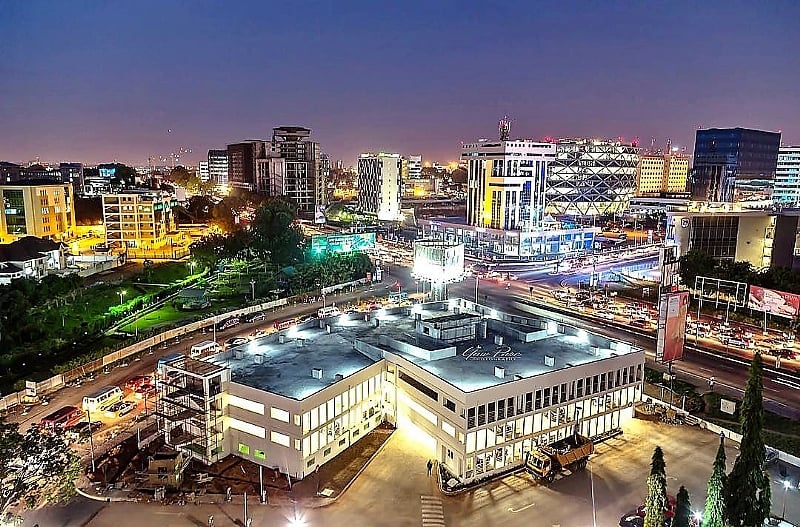The global cost of living crisis is impacting individuals across diverse economic landscapes, from Accra to London and beyond. While inflation rates may be easing in some regions, the reality for many is that wages haven’t kept pace with rising expenses, leading to a pervasive sense of financial strain. This struggle is not limited to basic necessities; healthcare, housing, and the increasing prevalence of subscription services further erode disposable income, fostering a shared sentiment of discontent. The author encapsulates this widespread frustration with the phrase “Nowhere Cool,” suggesting that the current structure of modern life is failing to deliver on the promise of prosperity and well-being. This malaise extends beyond mere economic hardship, reflecting deeper anxieties about job security, systemic fragility, and the growing disconnect between urban development and human-centric design.
The rise of Buy-Now-Pay-Later (BNPL) services, even for everyday purchases like meals and concert tickets, highlights the precarious financial state of many individuals. While BNPL can provide temporary budget relief, its increasing use for essential expenses signals a concerning trend. The normalization of debt for basic needs suggests a systemic problem, where individuals are increasingly reliant on borrowed comfort rather than genuine financial security. This trend is particularly worrisome in rapidly developing African cities, where BNPL is gaining traction, driven by mobile phone penetration, informal employment, and societal pressure to maintain appearances. The concern is that if credit becomes the primary means of participating in modern urban life, it creates a foundation of instability, undermining genuine economic empowerment. True societal progress, the author argues, requires systems that enable individuals to thrive without resorting to debt for essential needs.
The concept of “Persons of Concern” (POCs), originally used to describe refugees, has broadened to encompass a wider range of individuals facing financial vulnerability, including teachers, nurses, and even software engineers. These individuals, living paycheck to paycheck, represent a growing segment of the population struggling to make ends meet. The insidious nature of this economic precarity lies in its invisibility. Many POCs maintain a façade of normalcy, concealing their struggles with rationing resources, forgoing necessities, and delaying healthcare. This hidden strain weakens the social fabric, as middle-income earners slip into the ranks of the working poor, eroding the promise of upward mobility and shared prosperity. The pervasiveness of this struggle, encompassing a significant portion of urban populations, hinders innovation, ambition, and investment, creating a vicious cycle of economic stagnation.
To address these systemic challenges, the author proposes a three-pillar framework for urban development in Africa: regional productivity, worldwide connectivity, and self-reliance. Regional productivity emphasizes not just increased output, but the production of valuable goods and services within inclusive and sustainable frameworks. This involves reducing internal trade barriers, strengthening technical training systems to meet the demands of intra-African trade, and localizing supply chains to enhance resilience against external shocks. Worldwide connectivity focuses on leveraging the African Continental Free Trade Area (AfCFTA) to integrate African cities into global trade networks, while also promoting digital connectivity and supporting cultural exports. Self-reliance emphasizes building local capacity in essential sectors like food and energy production, leveraging technologies like AI-driven agriculture and renewable energy solutions to enhance resilience and reduce dependence on external sources.
The author advocates for specific policy interventions to address the challenges outlined, including regulating micro-credit and BNPL services to prevent predatory lending practices and promote responsible borrowing. Promoting “Earn-Save-Spend-Later” models encourages savings habits and reduces reliance on impulsive debt, while integrating infrastructure development with entrepreneurial support fosters economic growth and job creation. Tying export rebates to sustainable development goals incentivizes environmentally and socially responsible business practices, and launching an African Food Security Bond links investment returns to local agricultural yields, creating a shared stake in the success of the agricultural sector.
The overarching message is a call to action, emphasizing the interconnectedness of economic well-being and societal progress. If the growing ranks of Persons of Concern are not adequately supported, the consequences will ripple across all segments of society. Leveraging existing resources, such as continental trade corridors, digital finance platforms, and climate-smart agriculture, can create a foundation for self-sustaining cities and regions where basic needs are met, debt is not a prerequisite for participation in modern life, and regional prosperity drives economic security. This vision calls for a shift away from the current “Nowhere Cool” reality toward a future where economic opportunity and human well-being are prioritized, creating a truly thriving and inclusive society.














